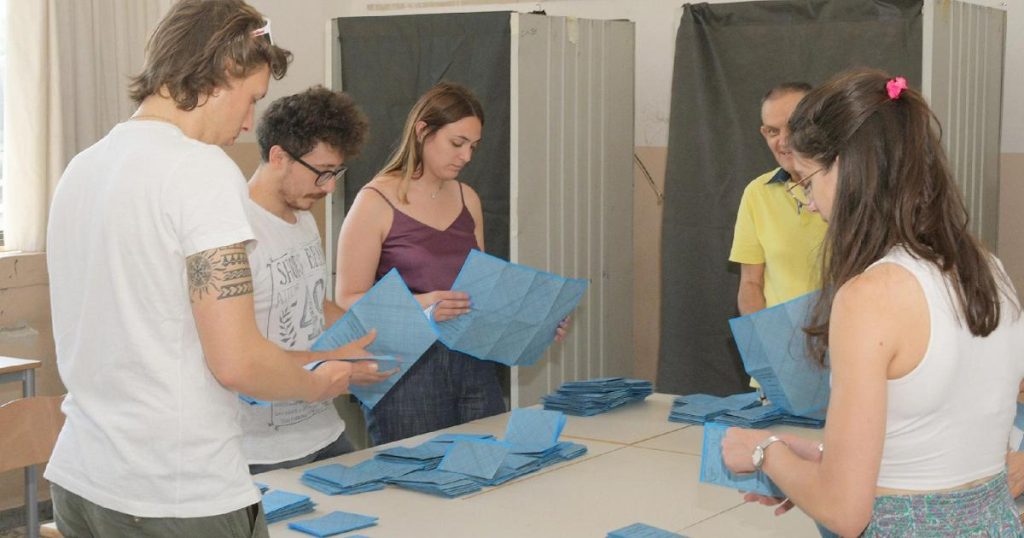Tomorrow, Sunday 23rd, and Monday 24th, there will be runoff elections in municipalities with a population of over 15,000 inhabitants where none of the candidates were able to secure 50% of the votes in the election day held on the 8th and 9th of June. There are 14 capital cities going to the runoffs. The center-left coalition won in 10 out of the 29 capital cities: Bergamo, Pavia, Reggio Emilia, Modena, Prato, Livorno, Cesena, Pesaro, Sassari, and Cagliari. Fratelli d’Italia emerged as the leading party in most northern cities. The center-right coalition prevailed in 5 capital cities: Biella, Ferrara, Forlì, Ascoli, and Pescara.
In Florence, the Five Star Movement (M5S) will support the Democratic Party (Pd) candidate Sara Funaro, who received 43.2% of the votes, against the former director of the Uffizi, Eike Schmidt, who got 32.86%. Italia Viva, which supported candidate Stefania Saccardi (7.2%), will not provide a voting indication. In Perugia, a female mayor will lead the Umbrian capital for sure. Vittoria Ferdinandi, backed by the center-left coalition, won 49.01% in the first round with support from the Democratic Party, Five Star Movement, Green Left Alliance, and others. Margherita Scoccia (FdI), an architect and current Urban Planning councilor, won 48.29% with support from Fratelli d’Italia, Lega, Forza Italia, and others. If she wins, it would be the third center-right victory in 10 years.
In Bari, the candidate who received 48%, Vito Leccese, a protégé of Decaro, will be supported by the M5S candidate Michele Laforgia, who came in third two weeks ago. The center-right candidate Fabio Romito received 29.1% of the votes. In Campobasso and Potenza, the center-right is leading in both cities. In Campobasso, Aldo De Benedittis of the center-right coalition passed the first round with 48.31% and is also supported by Azione and Italia Viva in the runoff, while Marialuisa Forte, from the center-left coalition, received 31.89%. In Potenza, Francesco Fanelli (center-right) got 40.6% of the votes, while Vincenzo Telesca (center-left) received 32.44%. There were five mayoral candidates in the capital city of the Basilicata region.
Overall, the runoff elections in various Italian municipalities will determine the final outcome in cities where no candidate reached 50% of the votes in the first round. The center-left coalition and the center-right coalition are competing for mayoralties in different cities, with each having significant support from various political parties. The presence of Fratelli d’Italia as a leading party in many northern cities is notable, showcasing the prevailing political trends in the region. The decision of the Five Star Movement to support the Democratic Party in some cities indicates a strategic alliance to secure victories in the runoffs.
The gender dynamics of the mayoral races are evident, with female candidates like Vittoria Ferdinandi and Margherita Scoccia vying for leadership positions in major cities. The support from multiple political parties for different candidates reflects the complexity of coalition-building in Italian politics. The outcome of the runoff elections will have implications for local governance and political alliances in these cities. The role of minor parties like Italia Viva and Azione in supporting certain candidates highlights the importance of broader political alliances in achieving electoral success. The results of these elections will shape the political landscape in these municipalities for the coming years.


